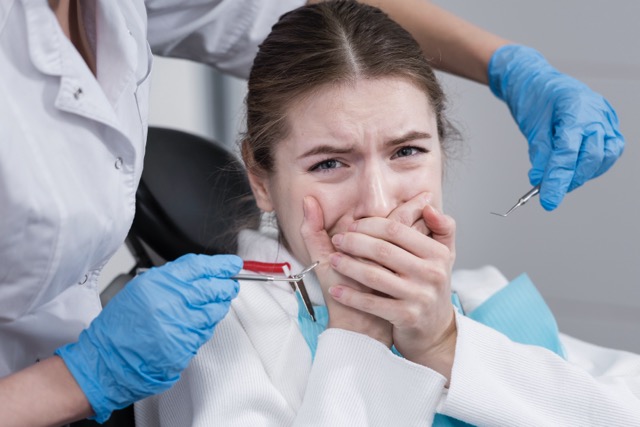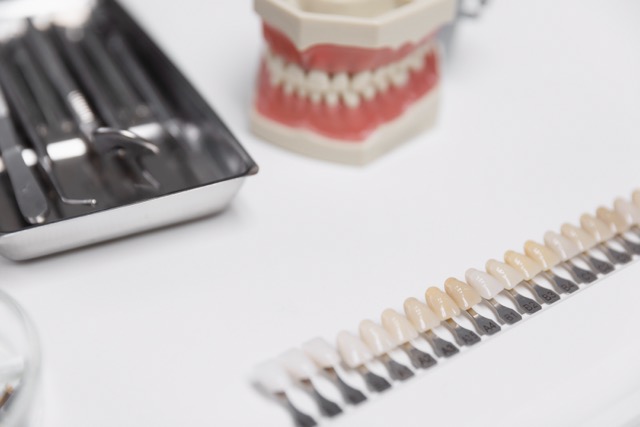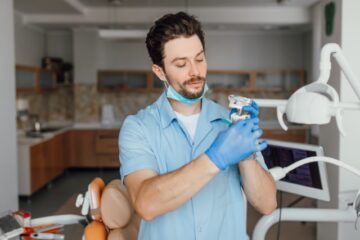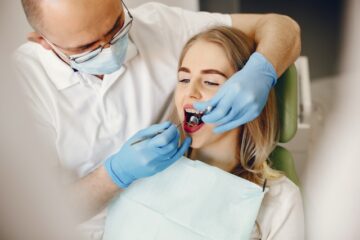Tooth Abrasion: Causes, Symptoms and Solutions

Contents

What doesn’t kill you makes you stronger.” That’s what the German philosopher Nietzsche said, and it’s also what Kelly Clarkson sings about. Unfortunately, this statement does not apply to dental health. Tooth abrasion, although it may not destroy a tooth in one moment, still causes irreparable damage to tooth enamel, and sooner or later leads to noticeable aesthetic defects and tooth decay.
In this article, we will explore the meaning of dental abrasion, why it occurs, how to address it, and provide some tips on prevention.
What is Tooth Abrasion?
Tooth abrasion is the gradual erosion of tooth enamel caused by external influences. It can occur due to intense or systemic mechanical impact, as well as the use of abrasive oral hygiene products.
Symptoms of tooth erosion:
- In the early stages, enamel erosion may not be noticeable at all. The first symptoms that may indicate a problem are increased tooth sensitivity and reactions to cold and hot foods. However, these symptoms can also be caused by other conditions.
- As erosion progresses, the enamel becomes damaged, leaving the internal structures of the tooth (dentin, pulp with nerve endings, and blood vessels) vulnerable to bacteria, germs, and decay in the oral cavity.
- In advanced stages of erosion, the teeth may exhibit noticeable destruction of the crown portion. Cavities may appear at the gum line, and the tooth may lose height, altering its anatomical shape.
Factors That Can Contribute to Tooth Abrasion
Intense Brushing
Applying excessive force when brushing your teeth or using a toothbrush that is too stiff can lead to the first symptoms of tooth erosion, such as thinning enamel and tooth sensitivity.
Too Abrasive Toothpaste
Whitening toothpaste or toothpaste containing abrasive particles can also contribute to the thinning of tooth enamel and tooth erosion.
Bruxism
Uncontrolled teeth grinding during sleep is a common problem and a root cause of dental abrasion. Bruxism often leads to the progression of the issue to advanced stages.
The Habit of Biting Hard Objects
We often associate “bad habits” with what we eat or consume, but they can also involve actions like abusing lollipops or biting on pens while studying or working, which can be detrimental to dental health.
Using Teeth as Tools
Some people habitually use their teeth to open packets of chips, tear scotch tape, crack pistachio shells, or even unscrew soda bottle caps when their hands are weak. However, these habits, which involve using teeth instead of proper tools, can lead to tooth erosion.
Dental Abrasion Treatment Options
Depending on the root cause of tooth erosion and the effects caused by the problem, the following techniques may be used to treat the disorder:
- Tooth Fluoridation: This technique involves strengthening tooth enamel with a special composition containing fluoride. It not only helps combat tooth sensitivity but also makes the enamel more resistant to bacteria and cavities.
- Dental Fillings: When tooth wear causes enamel damage and decay, dental fillings can prevent further decay and alleviate pain.
- Dental Bonding: This aesthetic and therapeutic procedure restores the anatomical shape of the tooth, correcting the effects of tooth erosion. It can address both minor defects and significant tooth loss. Decay is treated first, followed by the restoration of the crown portion of the tooth, resulting in a beautiful and healthy smile.
- Dental Mouth Guard: This protective mouth guard, recommended by dentists, is worn at night to alleviate pressure on the teeth and protect them from decay.
Tips for Preventing Teeth Abrasion
To prevent the development of problems that could lead to undesirable outcomes such as tooth loss, it is recommended to adhere to these simple rules:
- Visit your dentist regularly for preventive checkups. A professional dentist can detect issues before they cause discomfort.
- Use toothpaste containing fluoride.
- Use a toothbrush with soft or medium-hard bristles.
- If you experience tooth sensitivity to hot or cold foods that persists for more than 14 days, consult your dentist. It could be an early sign of erosion, and addressing it promptly is important.
- If you have bruxism and your dentist recommends a mouth guard for sleep, use it consistently.
We hope this information helps you understand more about the causes and treatment of tooth erosion. If you notice any symptoms of the disorder in yourself, please schedule an appointment with your dentist or visit our clinic for a consultation.
FAQ
Dental abrasion: the Most Common Questions
How serious is a dental abrasion?
This is a very serious problem that requires timely treatment. If left untreated at an early stage and its root causes are not addressed, it is possible to seriously damage dental health and even lose individual teeth altogether.
Does tooth abrasion go away?
It is possible, but only in the early stages of the disorder when damage to the teeth is minimal. In such cases, it is important to address the root cause that led to tooth erosion.
Does tooth abrasion hurt?
Yes. Tooth erosion refers to the damage and wearing away of the surface and middle layers of tooth enamel. This not only increases tooth sensitivity but also leads to persistent pain and tooth decay.
Is tooth abrasion common?
According to statistics from a study presented on the website of the National Institute of Health, 37% of people experience tooth erosion. Furthermore, 97% of individuals report tooth sensitivity, which is often the first symptom of tooth erosion.
Additional Resources
Sensitive Teeth – American Dental Association













